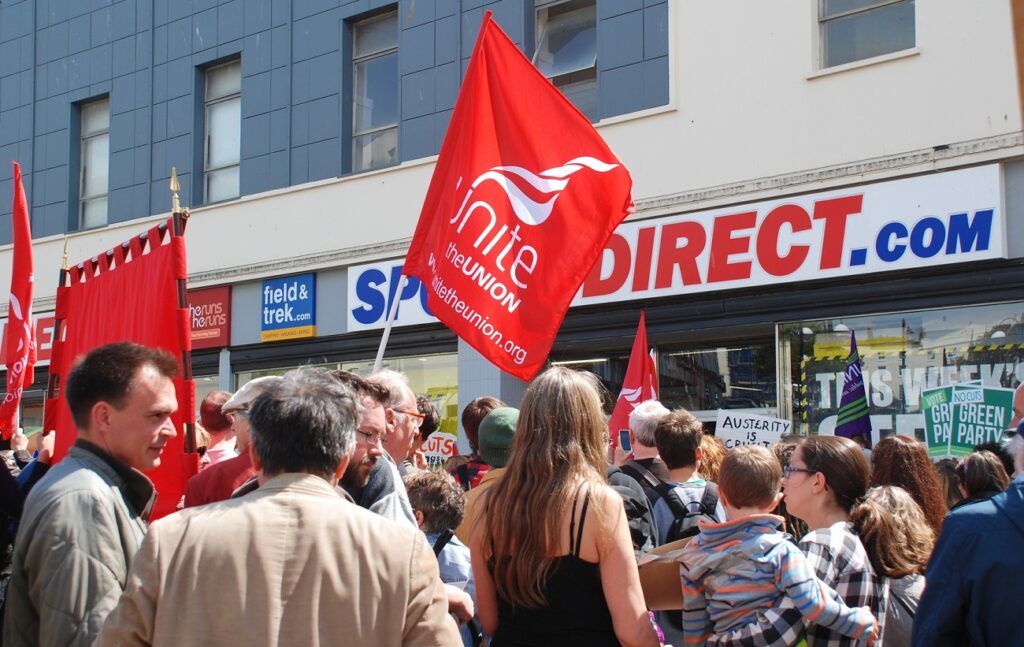Setting up a business is undoubtedly hard but the relationships in a start-up are often relatively simple – as a business owner you have responsibilities to yourself and to your clients.
When your venture starts to really grow, you take on another major responsibility, and that’s to your staff.
It’s not just you anymore: it’s your team on the payroll and their families that you’re looking after.
The decisions that you make from this point onwards have a knock-on effect on real people.
How to lead for the benefit of staff (and how not to do it)
To do it well, those with responsibility for others should express certain qualities: compassion, self-awareness and the ability to ditch an ego.
Losing sight of these qualities has consequences, as some recent national business stories in the news have ably demonstrated.
SMEs owners and managers in the digital age aren’t always where the action is.
Both Mike Ashley, controlling shareholder of Sports Direct, and Sir Philip Green, who took over the now defunct BHS, could be accused of placing self-interest before the good of their employees and stakeholders.
The results? Major embarrassment, damage to reputation and even a potential loss of a knighthood.
Admittedly, these are big companies with billion-pound decisions to make, but the principle is the same no matter how big your business is.
Good HR, strong leadership and a focus on looking after the people you employ will help you avoid going through anything like the above.
Think John Lewis with its companywide bonuses, great employee relations and even holiday centres it runs for staff; when you consider the effect this has on performance, as well as to the brand, it surely pays for itself.
A closer look at Sports Direct
For the shop floor and warehouse staff of Sports Direct, it’s been a long battle for some of the basic entitlements of employment, such as a minimum wage and a secure job.
For Mike Ashley and the brand, it’s been nothing short of embarrassing. If you needed an example of how a company treats its staff affects its brand, this is it.
When Mike Ashley opened up about the goings-on within his company to MPs in a BIS committee hearing, what was clear was that he was unaware of a lot of what was happening.
Although he visited the Shirebrook warehouse in question once a week he failed to spot the signs leading him to the truth about what was really happening. As scrutiny grew it became clear that the buck stops at the top, despite proclaimed innocence, whatever the size of the business.
SME owners more often than not aren’t experts in HR, and don’t have the time to stay up-to-date with ever-evolving employment law.
At least now the company has taken some measures to remedy the situation, with guaranteed hours for some workers and a review of some policies regarding treatment of employees.
However, with an AGM to come and media pressure unlikely to abate, you suspect the brand damage is set to continue.
The latest action taken to, one suspects, avoid a thrashing after the share price dropped dramatically shows that no company, big or small, can stand up against such bad publicity.
So what can SMEs learn from this example?
SMEs owners and managers in the digital age aren’t always where the action is, so they need to make sure they know what’s going on in the workplace.
Knowing what’s happening within your team is one thing, making sure that working conditions are optimised is another. What about this culture of fear purportedly present at Sports Direct?
The ‘six strikes’ policy employed by managers was blamed for creating Victorian-esque working conditions for staff who were subjected to heavy fines for small offences and were left in constant fear of losing their jobs. What would smaller firms gain by employing similar tactics?
Low staff turnover and a positive working culture are generally viewed as having a beneficial impact on the bottom line of any business.
In small teams where individuals grow into their roles to add value to your business, it may become divisive among the team members if they take sides when a colleague falls foul of your rules.
And it could be counterproductive if you corner yourself into dismissing an experienced employee who has notched up a final breach over the length of their long service.
To conclude
So while rules and systems may be seen as ways to get the most out of your staff, smaller businesses may find simple good people management a better solution.
And there’s another lesson to be learnt from all of this: don’t wait too long to fix a problem, especially if it concerns your staff.
SME owners more often than not aren’t experts in HR, and don’t have the time to stay up-to-date with ever-evolving employment law.
SMEs should always seek professional advice as soon as they identify an issue of concern. The longer it’s left, the worse it will get and it could cause your brand damage.






